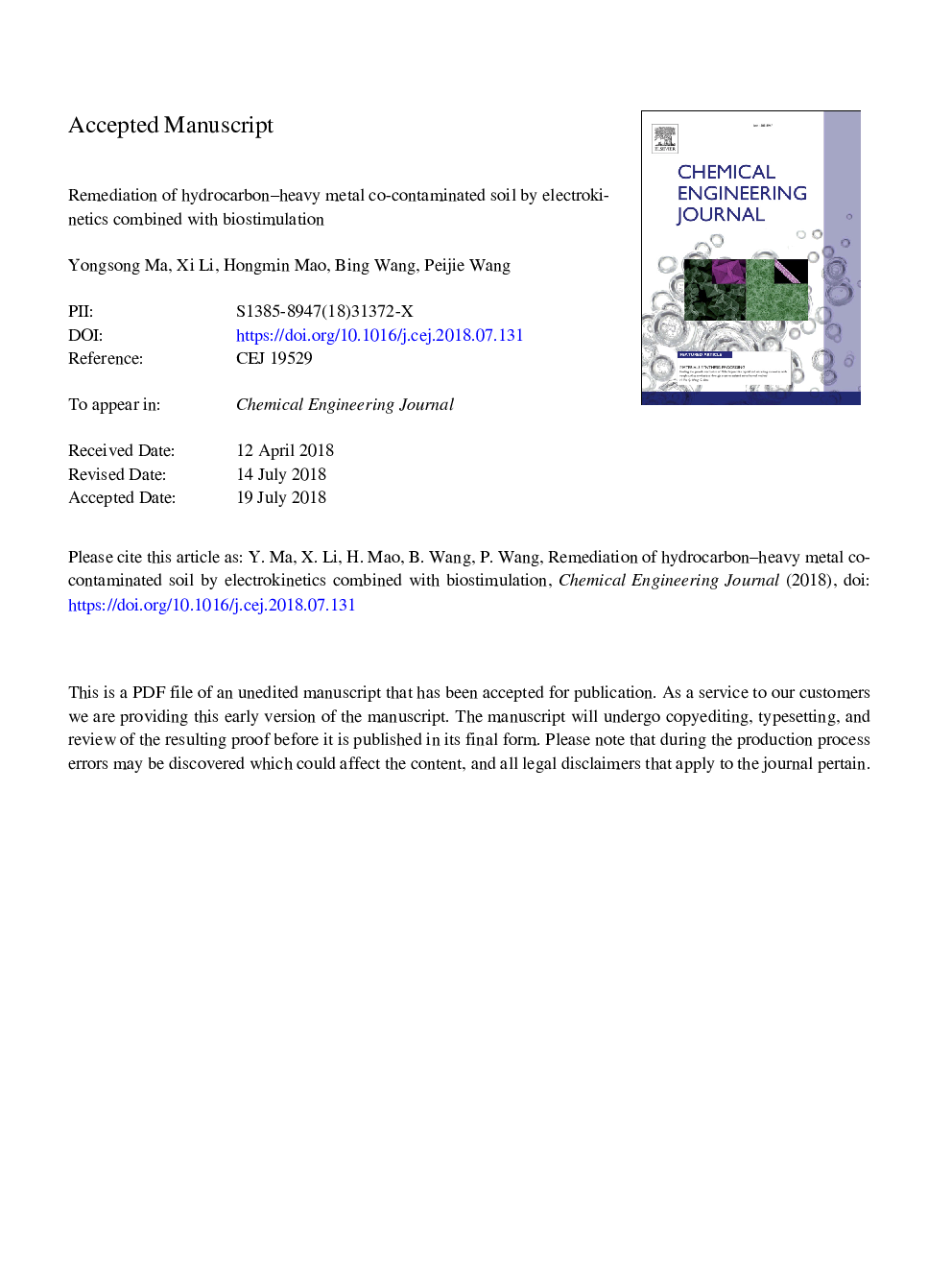| Article ID | Journal | Published Year | Pages | File Type |
|---|---|---|---|---|
| 6578032 | Chemical Engineering Journal | 2018 | 34 Pages |
Abstract
Successful remediation of organics and heavy metals compound pollution is challenging, and their removal using conventional techniques is often difficult. This study developed an enhanced electrokinetics technology to decontaminate a hydrocarbon-heavy metal co-contaminated soil by applying biostimulation and selective membranes (cationic and anionic). A 30-day experiment was conducted in the laboratory to remediate the soil co-contaminated with total petroleum hydrocarbon (TPH) (9075â¯mg/kg) and Ni (446.6â¯mg/kg). The results demonstrated that the addition of anion- and cation-exchange membranes maintained soil pH stability. BioEK remediation under pH control improved microbial growth, microbial degradation of petroleum and reduced biological toxicity. Microbial action immobilized metals (e.g., reduction in exchangeable Ni and the increase in residual Ni). The degradation rate of TPH in contaminated soil was linearly correlated with the increase in TPH degradation population (Pâ¯<â¯0.05). Under the optimum operating conditions, electro-bioremediation achieved 77.4% TPH degradation and 58.5% Ni removal after 30â¯days. Thus, the application of EK with the use of anion- and cation-exchange membranes improved microbial growth and biodegradation, and indigenous bacteria could effectively reduce metal toxicity. The proposed technique can effectively remediate the soil contaminated by heavy metal and organic pollutants.
Keywords
Related Topics
Physical Sciences and Engineering
Chemical Engineering
Chemical Engineering (General)
Authors
Yongsong Ma, Xi Li, Hongmin Mao, Bing Wang, Peijie Wang,
